Discover If Crest is Cruelty Free: Unbiased Insights and Analysis
Searching for a cruelty-free lifestyle often leads us to ask, “Is Crest, a trusted name in oral care, truly cruelty-free?” As someone devoted to safe and ethical living, I understand the importance of aligning our purchasing choices with our values. Let’s investigate Crest’s animal testing practices together.
In this article, we’ll explore Crest’s approach to animal testing and what those policies say about their parent company. We’ll also examine how Crest measures up against other, potentially cruelty-free, alternatives in the market.
By the end, you’ll be equipped with the knowledge you need to make informed, conscious decisions about your oral care regimen. And remember, every step we take towards cruelty-free choices makes a massive difference to our world.
Understanding What Cruelty-Free Means
Cruelty-free products are developed without any form of animal testing, ensuring ethical practices from inception to final production. Brands with cruelty-free status abstain from using animal tests for both their products and individual ingredients, emphasizing humane treatment throughout their processes.
Organizations such as PETA, Leaping Bunny, and Cruelty Free International issue cruelty-free certifications to companies that meet their stringent criteria. These certifications serve as reliable proof that a brand’s products and ingredients were developed without harming animals.
To achieve this status, companies must adhere to strict guidelines, importantly avoiding markets where animal testing is mandatory by law. This demonstrates a company’s strong commitment to ethical practices, ensuring no animals are harmed during the development process.
The Significance of Cruelty-Free Labels
Cruelty-free labels are vital for helping consumers make informed and ethical purchasing decisions. They indicate a company’s dedication to humane testing practices and act as a seal of approval, certifying that the products are free from animal cruelty.
A cruelty-free label also demonstrates the company’s advocacy for alternative testing methods, such as in vitro testing and computer modeling. These methods do not involve animals and often yield more reliable and comprehensive safety data.
The demand for cruelty-free products is growing rapidly, reflecting a societal shift towards ethical consumption. Consumers are increasingly inclined to support brands that align with their values, making cruelty-free products a preferred choice for those leading a compassionate and conscientious lifestyle.
Understanding Crest’s Animal Testing Policies
When exploring Crest’s animal testing policies, it becomes clear that their stance is a bit of a labyrinth. One significant issue is the lack of transparency. Crest hasn’t made its official animal testing policy easily accessible on its website, which leaves us navigating in the dark.
However, we do know that Crest allows animal testing when it’s required by law.
This compromise significantly affects its claim to being cruelty-free. On the positive side, Crest is investing in alternative, non-animal testing methods. This shows a partial commitment to humane practices, but this duality raises questions about whether Crest can truly be considered cruelty-free.
Does Crest Sell in Countries Mandating Animal Testing?
One of the biggest hurdles for Crest in being recognized as cruelty-free is its adherence to local regulations in certain markets. Specifically, Crest sells its products in mainland China, where animal testing is mandatory for many imported products.
This compliance directly conflicts with cruelty-free principles, impacting Crest’s reputation and alienating consumers who prioritize ethical products. As long as Crest continues to comply with these local laws rather than finding alternative strategies, it will remain unlisted by major cruelty-free organizations and will continue to face criticism from the public and advocacy groups.
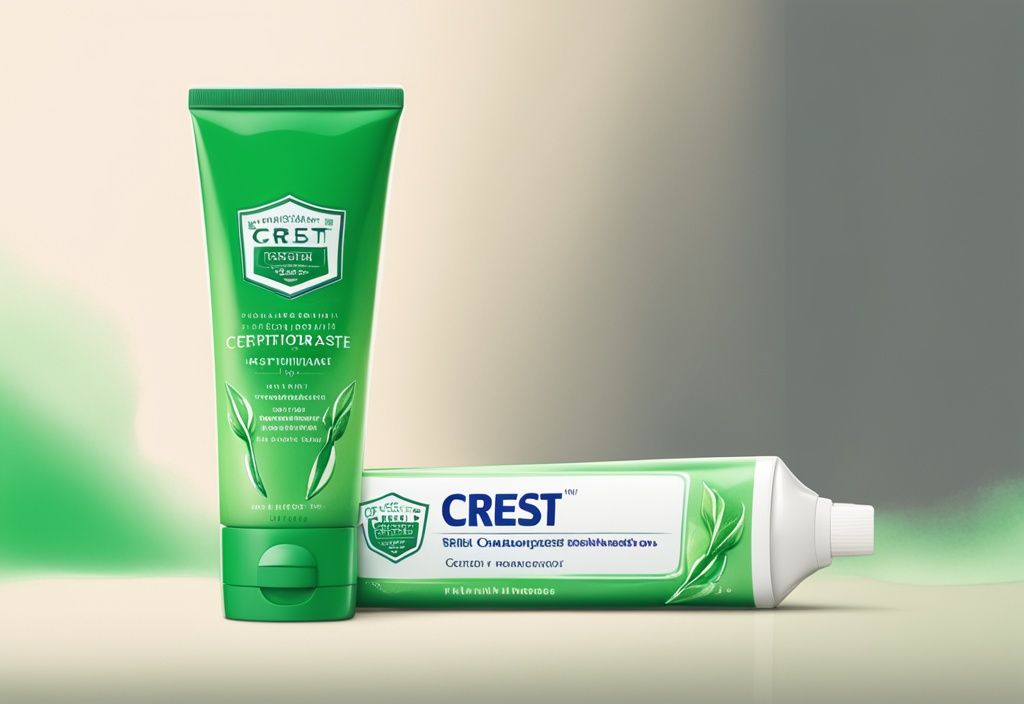
Procter & Gamble: The Parent Company Behind Crest
When talking about Crest’s cruelty-free status, it’s essential to look at the parent company, Procter & Gamble (P&G). Understanding P&G’s influence gives us a clearer picture of where Crest stands on animal testing.
Extent of Procter & Gamble’s Influence on Crest
Crest, a familiar name in dental care, operates under the umbrella of Procter & Gamble (P&G). The policies that P&G upholds directly shape the practices of all its subsidiaries, including Crest. This means Crest is required to follow animal testing laws in regions where it’s mandatory, like mainland China. This conformity essentially categorizes Crest’s operations and policies under P&G’s broader stance on animal testing. Consequently, P&G’s directives play a substantial role in Crest’s ability to be recognized as cruelty-free.
Understanding Procter & Gamble’s Stance on Animal Testing
Exploring whether Crest is cruelty-free necessitates a deep dive into Procter & Gamble’s overall approach to animal testing.
P&G adopts a region-specific strategy, performing animal tests only when mandated by legal requirements. This pragmatism means global cruelty-free certification remains out of reach.
However, it’s not all bleak. For those interested in cruelty-free alternatives, understanding the benefits and principles of organic products can be enlightening. For example, what is organic tea and how it aligns with sustainable practices can offer valuable insights.
P&G has been proactive in reducing animal testing, collaborating with Humane Society International and PETA to seek alternative methods. Despite these collaborations, P&G hasn’t yet achieved an official cruelty-free certification. This has a direct impact on Crest, compelling the brand to navigate regulatory requirements while investing in non-animal testing methods. The result? A dual approach that underscores the challenges and efforts within Crest’s cruelty-free journey, mirroring P&G’s complex position on animal testing.
Reactions of Animal Advocacy Groups
The response from animal advocacy groups has been overwhelmingly critical. Crest’s practices have not gone unnoticed, sparking dedicated campaigns and outcries from those passionate about animal welfare.
PETA’s stance on Crest
PETA, a leading voice in animal rights, is unambiguous on the issue of “is Crest cruelty free.” According to PETA, Crest continues to engage in animal testing, which disqualifies it from being considered cruelty-free. Consequently, Crest does not make it onto PETA’s list of recommended cruelty-free brands. PETA urges consumers to choose products from companies that uphold cruelty-free practices, highlighting the crucial role of ethical consumerism.
Efforts Taken by Animal Welfare Groups Against Crest
Various animal welfare organizations are not staying silent about Crest’s animal testing policies. These groups have been active, organizing boycotts and launching petitions that call for Crest to embrace cruelty-free methods. Notable organizations like Ethical Elephant have listed Crest as a “Brand to Avoid,” advising consumers to steer clear due to its involvement in animal testing. Through these advocacy efforts, the goal is not just to raise awareness but also to push Crest towards adopting more humane testing methods.
The Consumer Perspective
Exploring the answers to “Is Crest cruelty free?” uncovers deeper dimensions of consumer behavior and ethical choices. This section delves into the impact of Crest’s animal testing policies on consumer actions and explores viable, cruelty-free alternatives.
Do Consumers Boycott Crest for not Being Cruelty-Free?
Public awareness regarding the question, “Is Crest cruelty free?” has significantly influenced consumer behavior.
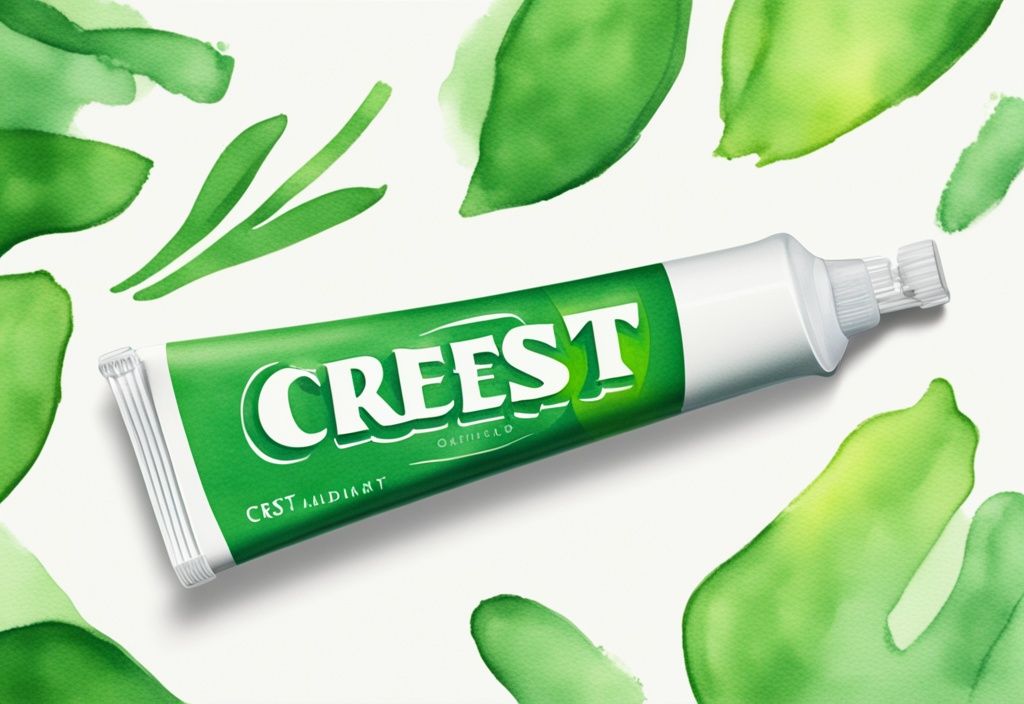
Many people, myself included, are now conscious of the ethical implications of their purchase decisions.
We choose to boycott brands involved in animal testing. Crest’s adherence to mandatory animal testing laws in some countries, such as mainland China, has led to public disapproval.
This has resulted in boycotts and petitions.
This consumer activism mirrors a broader societal trend towards ethical consumption.
Individuals are increasingly prioritizing brands that align with their values, contributing to a shift toward more humane practices in product development.
Cruelty-Free Alternatives to Crest
For those questioning, “Is Crest cruelty free?” and seeking alternatives, several cruelty-free dental care brands offer ethical options.
These options not only align with our values but also provide high-quality products.
Brands like Tom’s of Maine, Dr. Bronner’s, and Jason Natural are excellent choices for consumers aiming to avoid products tested on animals.
These brands are certified by major cruelty-free organizations and are committed to humane product development practices.
By opting for these alternatives, we can support companies prioritizing animal welfare and ethical testing methods.
This shift in our purchasing power encourages more brands to adopt cruelty-free practices, benefitting both our well-being and the planet.
Vegan Considerations
Navigating veganism involves more than just diet—it’s about ethical consumption in all aspects of life, including personal care products.
Is there a Place for Crest in a Vegan Lifestyle?
- For those committed to a vegan lifestyle, the question “is Crest cruelty-free” is crucial. Some Crest products might be free from animal by-products, but the brand is not entirely aligned with vegan principles due to its stance on animal testing. Crest supports efforts to make animal testing obsolete, but its compliance with mandatory testing laws in specific markets prevents it from achieving a cruelty-free status.
- This complexity impacts its acceptability within a vegan lifestyle where ethical consumption is paramount. Vegans seeking to eliminate all forms of animal exploitation might find better options with brands that prioritize both cruelty-free certification and vegan ingredients.
For a truly comprehensive vegan lifestyle, choosing products certified by reputable organizations ensures adherence to strict cruelty-free and vegan standards. This offers peace of mind and aligns with ethical values. For those interested in personal wellness and intimacy, exploring options like non-toxic sex toys can further enhance your commitment to a cruelty-free living.
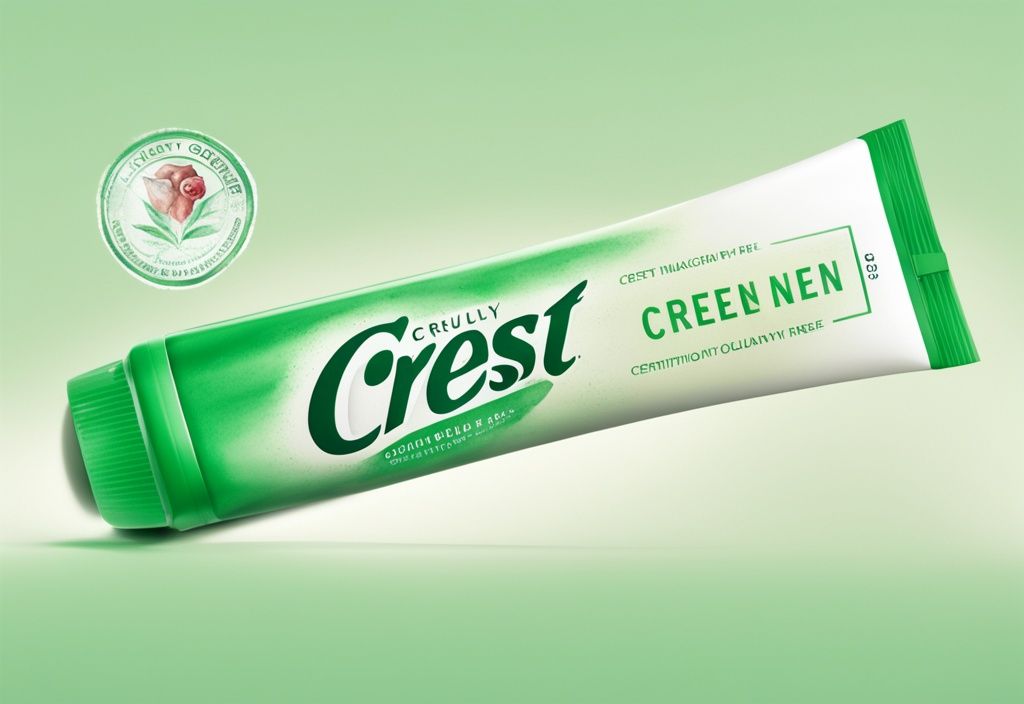
Moving Forward: Crest’s Notion Towards Non-Animal Testing
Crest’s current stance and initiatives show a clear intention to step away from animal testing. The company has been vocal about its support for alternatives to animal testing and financially backs research in this area. It’s heartening to see such commitment towards more humane and innovative methods for product safety testing.
Crest’s Movement to Make Animal Testing a Thing of the Past
Despite the promising investments, Crest encounters formidable hurdles in fully adopting cruelty-free practices. One significant obstacle is compliance with local regulations, especially in markets like mainland China, where animal testing is a legal requirement. This compliance presents a considerable challenge in achieving cruelty-free certification universally.
The role of consumer advocacy cannot be overstated in this context. Persistent efforts from animal welfare organizations, coupled with consumer pressure, play a crucial role in influencing brand policies. Actions like boycotts, petitions, and ongoing dialogue with the brand can potentially drive Crest to reconsider its stance and expedite the global adoption of non-animal testing methods.
Conclusion
At this point, Crest is not considered a cruelty-free brand. Its compliance with mandatory animal testing laws in specific markets is the main reason. Additionally, Crest’s parent company, Procter & Gamble, upholds overarching policies that don’t align with cruelty-free principles. Although Crest claims to support non-animal testing methods and has invested somewhat in this area, it hasn’t secured any certifications from notable organizations like PETA or Leaping Bunny.
If cruelty-free products are a priority for you, the dental care market has plenty of worthy alternatives. Brands like Tom’s of Maine, Dr.
Additionally, if you are interested in other non-toxic options, you might want to check out these non toxic dinnerware brands.
Bronner’s, and Jason Natural not only stand firm against animal testing but also boast certifications from well-recognized cruelty-free organizations.
These brands offer ethical choices, proving that you don’t have to compromise on quality or efficacy for your values. Choosing such alternatives allows you to support companies that align with a cruelty-free ethos, making it easier to maintain a compassionate lifestyle.
Is Crest Cruelty-Free? Exploring Key Questions
Does Crest commit to being cruelty-free?
- No, Crest is not committed to being 100% cruelty-free. Crest permits animal testing when required by law. This policy prevents the brand from gaining cruelty-free certification from major organizations.
What are the reasons Crest isn’t considered cruelty-free?
- Crest engages in animal testing where laws demand it, notably in regions such as mainland China. Additionally, Crest lacks certification from prominent cruelty-free organizations, including PETA and Leaping Bunny.
Can I consider Crest as a vegan option?
- No, Crest cannot be considered a vegan option. While some Crest products might not include animal by-products, their stance on animal testing makes them ethically incompatible with vegan principles.
Are there any cruelty-free alternatives to Crest?
- Yes, there are cruelty-free alternatives to Crest. Brands like Tom’s of Maine, Dr. Bronner’s, and Jason Natural offer certified cruelty-free products. These brands ensure that no animal testing is involved in their production processes.
Hi, I’m Olivia Green, the voice behind nontoxicways.com. I’m passionate about helping you make the shift to a healthier, non-toxic lifestyle without feeling overwhelmed. I love sharing my personal journey, from small changes to big transformations, along with practical tips that make it all feel doable. My goal is to inspire and guide you toward a lifestyle that benefits both your well-being and the planet. Let’s take this journey together, one simple step at a time!
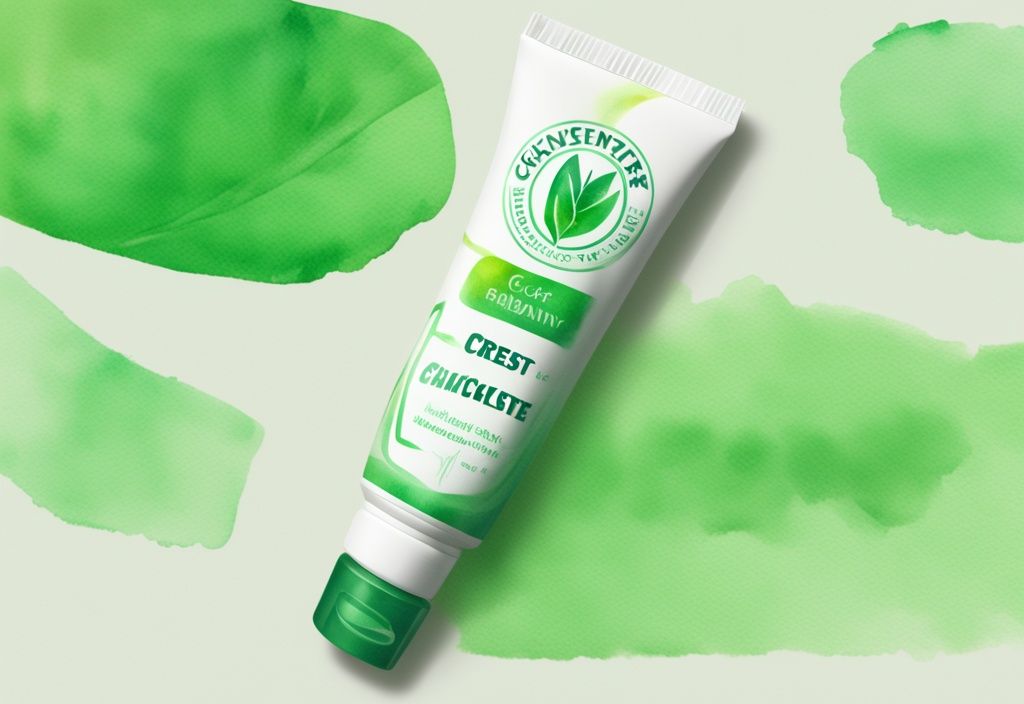











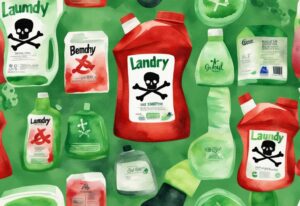

Post Comment